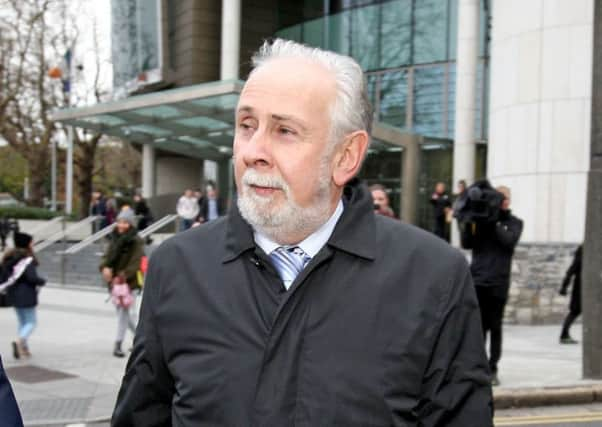Little-noted Brexit deal clause could halt Irish extraditions to UK


Article 185 of the over 580-page agreement deals with the right of EU states to refuse to heed European Arrest Warrants (EAWs) during the transition period.
There are already some reasons why states can refuse to heed EAWs (including that the arresting authorities regard the crime in question as having been committed in their own state, or if they are already prosecuting the suspect for the same act).
Advertisement
Hide AdAdvertisement
Hide AdHowever, Article 185 says if a state cites “fundamental principles of national law”, the EU may declare “the executing judicial authorities of that member state may refuse to surrender its nationals to the UK pursuant to a EAW”.
If this happens, “the UK may declare, no later than one month after the receipt of the Union’s declaration, that its executing judicial authorities may refuse to surrender its nationals to that member state” – effectively retaliating.
Doug Beattie, for the UUP, said: “This is yet another piece of ambiguity in the text which raises more questions than answers.
“This is of huge significance to Northern Ireland given the implications it could have for extradition.
Advertisement
Hide AdAdvertisement
Hide Ad“I will be writing to the Chief Constable to ask him for his assessment.
“I find it difficult to believe that the UK Government would find this in any way acceptable, especially at a time when the Secretary of State is selling legacy mechanisms which this has the potential to undermine.”
Meanwhile TUV leader Jim Allister said: “Given the Republic’s track record in exploiting extradition loopholes people are right to be concerned about this.
“Throughout the Troubles the Republic largely acted as a safe haven for terrorists as their courts refused to extradite people to stand trial.
Advertisement
Hide AdAdvertisement
Hide AdHe said the recent EAW-based detention of John Downey in the Republic, with a view to extraditing him on suspicion of two historic UDR murders in Northern Ireland, “starkly illustrates that this is not just a matter of historic note”.
“DUP deputy leader Nigel Dodds MP said: “It does raise the prospect of extraditions being impacted.
“Security, intelligence and tackling crime are issues that the UK and EU should be able to co-operate on for the mutual benefit of all our citizens.
“From Northern Ireland’s point of view it would be particularly important for the Irish government to clarify that they will continue the positive co-operation on law enforcement which exists across the border and that extraditions can and will continue.”
Advertisement
Hide AdAdvertisement
Hide AdThe News Letter asked the PPS about the clause, but it referred the News Letter to Northern Ireland’s Department for Justice.
It in turn said it was a UK government matter.
So, as representatives of the UK government in Northern Ireland, the Northern Ireland Office was asked.
It then said it was a question for Westminster’s Department for Exiting the EU.
It issued a statement, which read: “Our first aim is - and must be - to ensure that we maintain the operational capabilities which keep UK and EU citizens safe.
Advertisement
Hide AdAdvertisement
Hide Ad“We believe it is in the interests of both the UK and EU member states that swift and effective extradition arrangements provided for by the European Arrest Warrant (EAW), are preserved during the implementation period.”